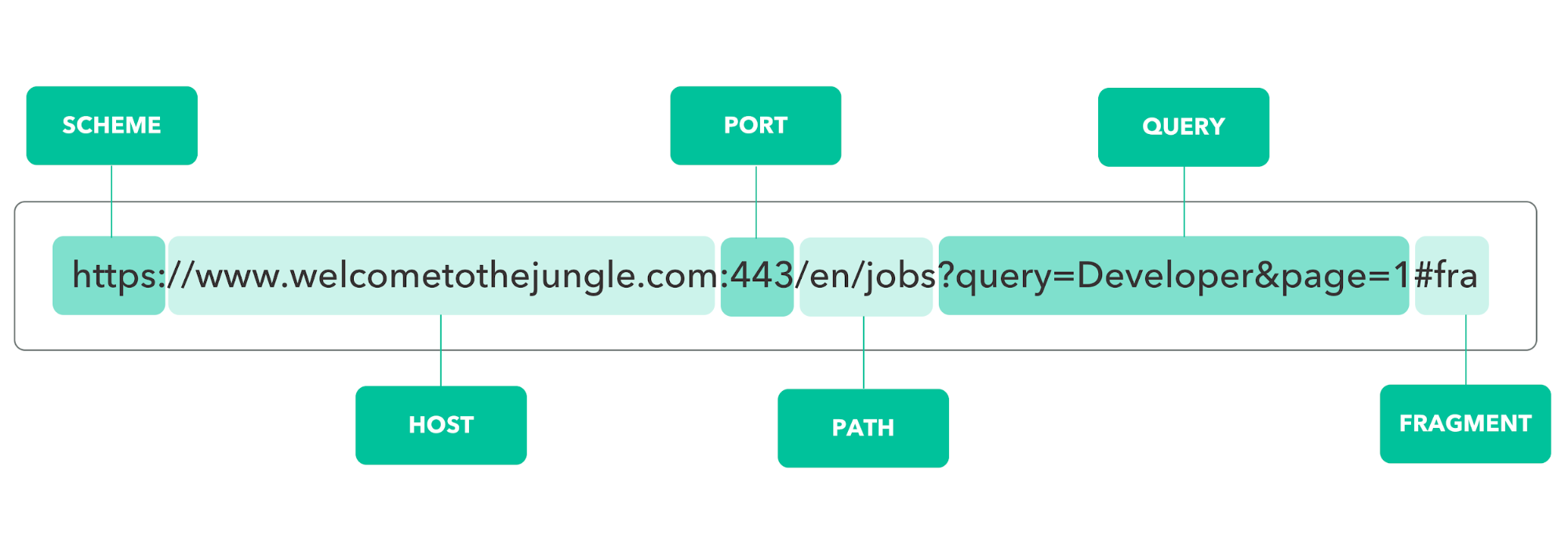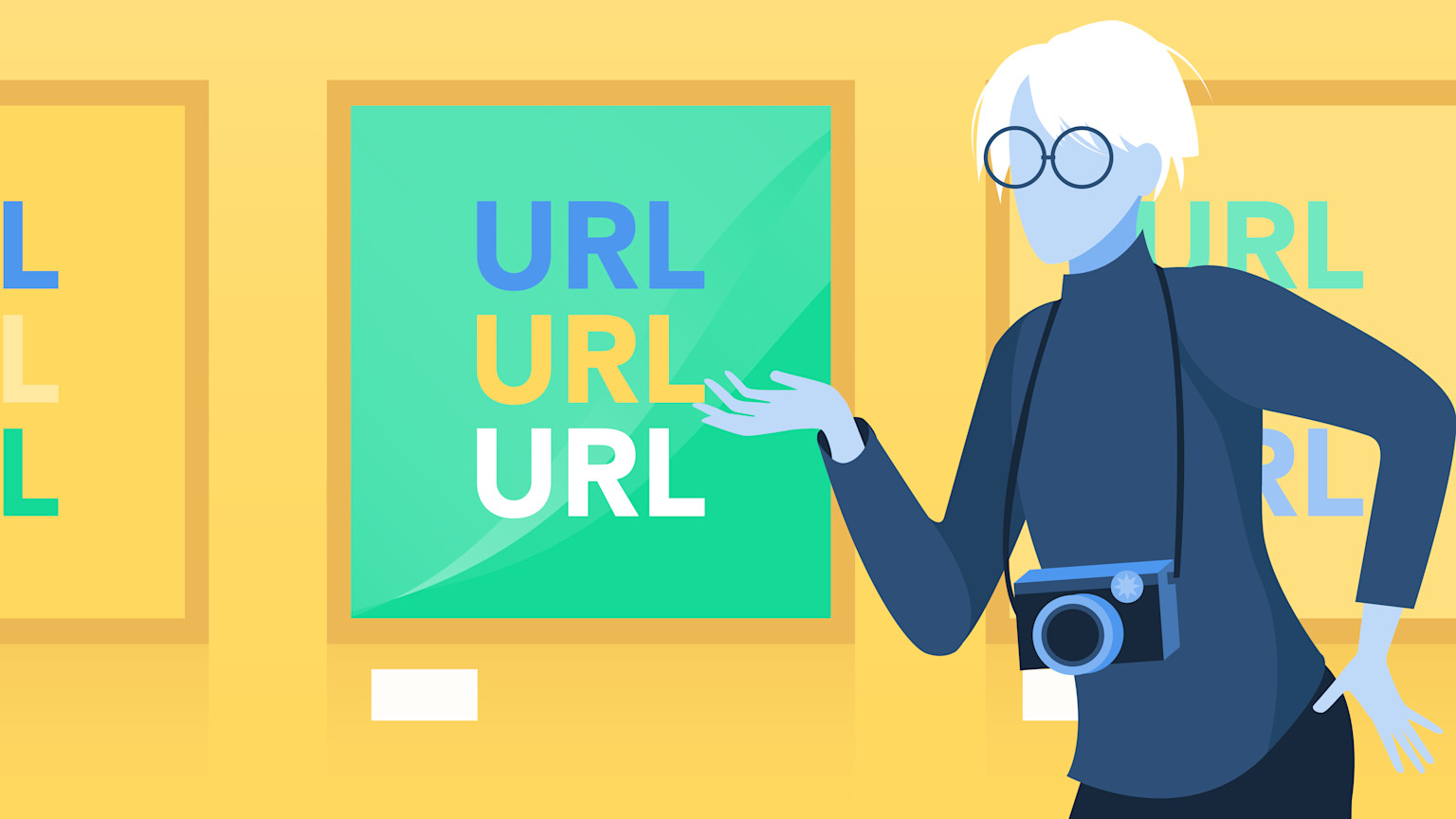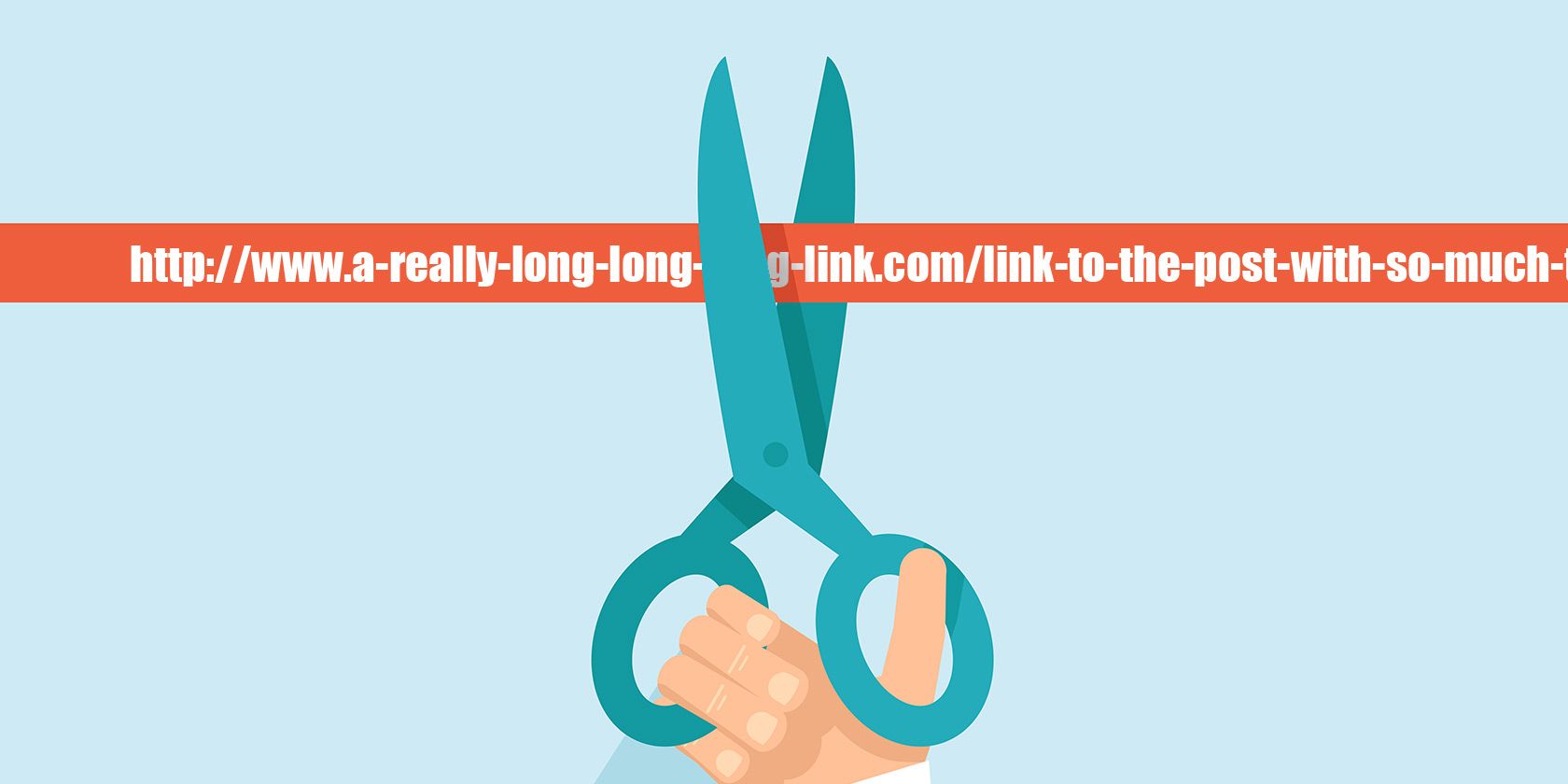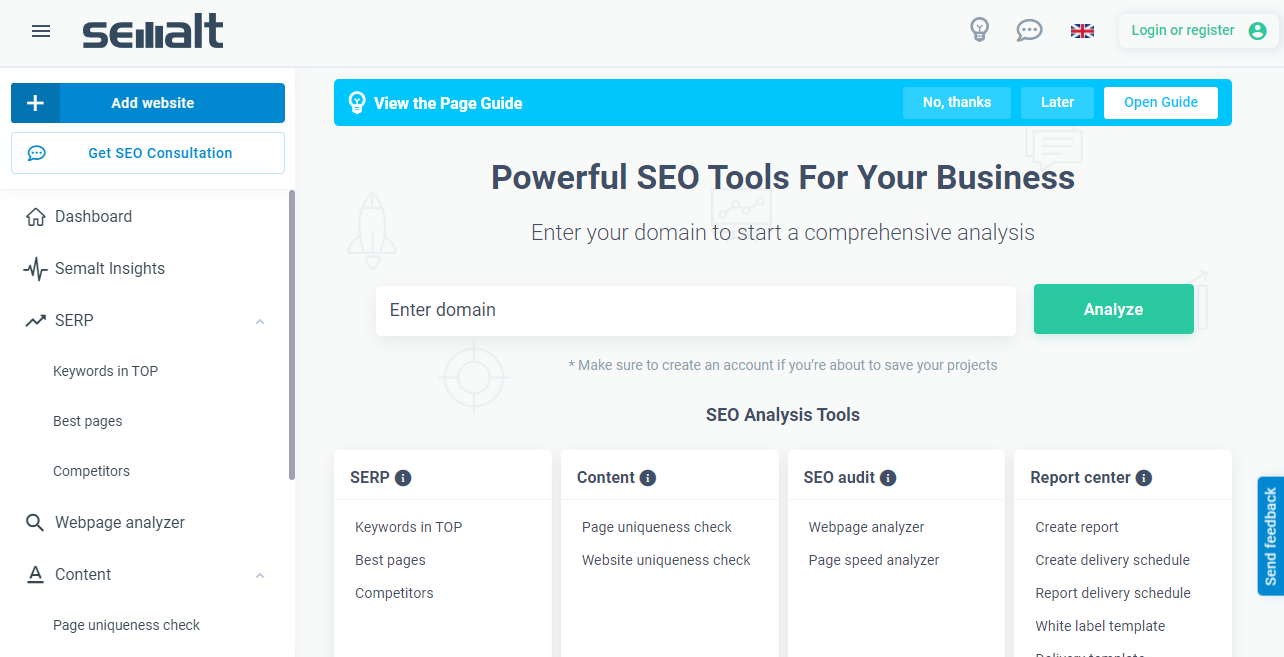Optimizing Your Page's URL For SEO With Semalt

Are you wondering what the point of optimizing your page's URL for SEO is? Don't worry, you are at the right place to get the answer.
Indeed, many SEO professionals and business website owners don't really know the importance of optimizing a page's URL for SEO. That's why this article is written to present you with the benefits of this process.
We invite you to read this entire article to discover the reasons why you should optimize your page's URL while using a good SEO tool such as the DSD from Semalt.
What is the purpose of the URL?
The URL is the generally accepted standard for writing the address of a document. It is a kind of browser that is accessed by algorithms at the user's request. The URL is necessary to identify any electronic resource: website, document, image, video, or audio track.

Indeed, the specificity of a URL is similar to an ordinary postal address. That is, the URL contains the unique location of the file on the World Wide Web. According to this, the algorithms determine the location of the desired site and redirect the user to it.
What are the benefits of optimizing the URL of one's page for SEO?
The optimization of the URL of a page for SEO has many advantages. Among them, here are some:
1. Increasing the visibility of the site in search engines
The essence of SEO is to allow the user to find more quickly the information he/she needs by searching on search engines.
To do this, the task of an SEO specialist is important. He or she must be able to upgrade the site following the SEO criteria.
While doing the job, the specialist can also use a better SEO tool such as the Dedicated SEO Dashboard to carry it out. Thus, he/she will gain the trust of the robots that will then help the target audience to find the site, product, etc... and carry out the targeted action. That is: to buy, order, subscribe, and become your permanent loyal customer.
2. Knowing what users are looking for
When someone wants to find information on the Internet, they enter in the search bar the keywords that are most likely to help them find the answer to their question. For example, to find out the definition of "SEO," users often enter the following search query: What is SEO?
To this action, there may be a list of answers. Indeed, after entering a query and running the search, a numbered list of 10 to 15 sites on each page is displayed. The sites may occupy a certain position (ranked in a certain order) depending on many factors.

As practice shows, users rarely go beyond the second page of the search. This means that to attract more users to the site, it must belong to the TOP. That is, in the list of sorted pages that the search engine issues for a specific query. The higher the site is in the search results, the more likely the user is to click on it. This is why it is important to optimize the URL of the different pages and also to take care of all the other SEO criteria of your site with the help of such an efficient SEO tool as the Dedicated SEO Dashboard.
Thus, your site has the chance to be displayed on the first page of search engines, which will allow you to generate more traffic on it.
3. Improving your search block
When entering a query in the search bar, you can see not only a list of sites at certain positions, but also blocks of information without numbers. For example, when you enter the query "what is SEO" in a search engine on the right you will find a block with a definition and several infographics. Underneath, you will also find a few sites divided by positions, and a little further down, you will find a block with "similar queries".
4. Impacting the choice of the robots
For a site to be part of the search results, it must go through three steps: crawling, indexing, and ranking. Indeed, there are crawlers that check the sites: the content of their pages, the relevance of the information, their reliability, etc.
At the scanning stage (crawling), the robots go around the site and find new pages by clicking on the links found. The crawler can either find new pages by itself or point to them manually. For example, via tools for webmasters (Google Search Console, Yandex, Webmaster).
At the time of indexing, the robot determines the type of the page and studies its subject and content. It can then add it to its database, to its own index if it finds the content of the page useful to users.
In the last step, the robot selects the most appropriate pages from its own index and publishes them in response to a specific request. The order of publication depends on how the URL is specified, the opinion of the robot, and the content (its quality, the reputation of the domain, etc.).
Seeing all this, the job of an SEO optimizer is to properly optimize the URL of the pages and to continuously improve the other useful SEO criteria. Thus, the search engine will find its content useful, add it to the index and return it as high as possible in the top in response to a query.
To do this, there are various methods of website optimization. However, the most important thing, in any case, is to have a better SEO tool. In this case, it is the SEO Personal Dashboard.
Now, let's find out together how the URL affects SEO.
How does a URL affect SEO?
A URL compiled according to the rules affects the relevance of the site and the evaluation of the resource by search algorithms.
This is because the algorithms take into account the anchors, link descriptions, and URLs of sites in the network to determine the meaning of the content and its quality. Therefore, simple links are well received by the algorithms and convey information about the content of the page. In contrast, links with meaningless characters scare users and are perceived by the algorithm as spam. The click-through rate for these snippets is lower than for links with understandable anchors.
Therefore, if you want to increase traffic to your website, make your URLs as simple and memorable as possible.
How to compose a URL?

Search engines analyze all structural elements of a URL separately: characters, cases, and even versions.
In fact, you must place your site on a secure protocol: HTTPS, as recommended by Google. Landing pages also guarantee the reliability and security of their content, as they can be configured with an HTTPS transfer method using an SSL certificate for your domain.
When adding a site to the console, specify all version options: HTTP / HTTPS, www, non-www. Set a 301 redirect to redirect visitors to the correct page by default.
Indeed, upper and lower case in the protocol and domain name are treated the same by search engines. But the case change in the file name, query string, and host is not. So try to write the link in a single register.
Also, the presence or absence of a slash after the domain name is not important to browsers. In fact, search engines will redirect the user to the desired site in both cases. But if you put an extra slash in other parts of the URL, search engines will not understand the request. So merge the slash versions of 301 redirects.
How to optimize the URL?
When optimizing, you must take into account the requirements of search engines and the comfort of users. So, here are the criteria that you must respect when composing a URL:
1. Specify the keywords in the link
By specifying the keywords in the link, they rank better and help the visitors to evaluate the usefulness of the material before moving to the page. So it's really important to do this.
2. Don't use hashtags in the URL
Using hashtags in the link has a detrimental effect on indexing. If the link contains a hashtag or an anchor, Googlebot will remove that part of the link from the index.
3. Separate parts of the link with a hyphen
Google does not recommend separating words in a link with spaces or underscores, as it makes the link much harder to read. So try to use the hyphen to do this.
4. Keep URLs short

The longer the text, the harder it is for search bots to parse the link. As a result, short URLs improve the site's ranking on Google and are convenient for visitors.
5. Evaluate the readability of the link
The appearance of a URL is important to users. They need to understand what they will see when they visit the site. The click-through rate and the number of transitions for understandable links are higher if this criterion is taken into account.
6. Write in lower case
Search engines consider these URLs to be identical. But there are servers where the difference is fundamental. Write everything in a single register in lower case.
7. Check how your URL works
Proper linking helps crawlers manage the mass of links and personalize the page. This helps users navigate through the content. Therefore, it is necessary not to ignore this step.
8. Don't write in URL headers
URLs that are too long are of no use to attract readers. We also advise against shortening the address, as you will change the information on the site as a result.
9. Remove UTM tags and other dynamic parameters
They make the address longer, which users and search engines do not like. They have a lower click-through rate. That is, users are reluctant to click on long links with tags.
Conclusion
In summary, optimizing your page URL for SEO increases your site's ranking in search engines. It also allows visitors as well as search engines to immediately understand the content of your page.
This optimization brings benefits such as profitability, sustainability, and a relationship of trust with the customer. To do this, we recommend that you optimize your page's URL for greater visibility on search engines. However, always consider going through this process by using a better comprehensive SEO tool such as the Dedicated SEO Dashboard. By following the above-mentioned tips, your site will be ranked on the first page of search engines in no time.
